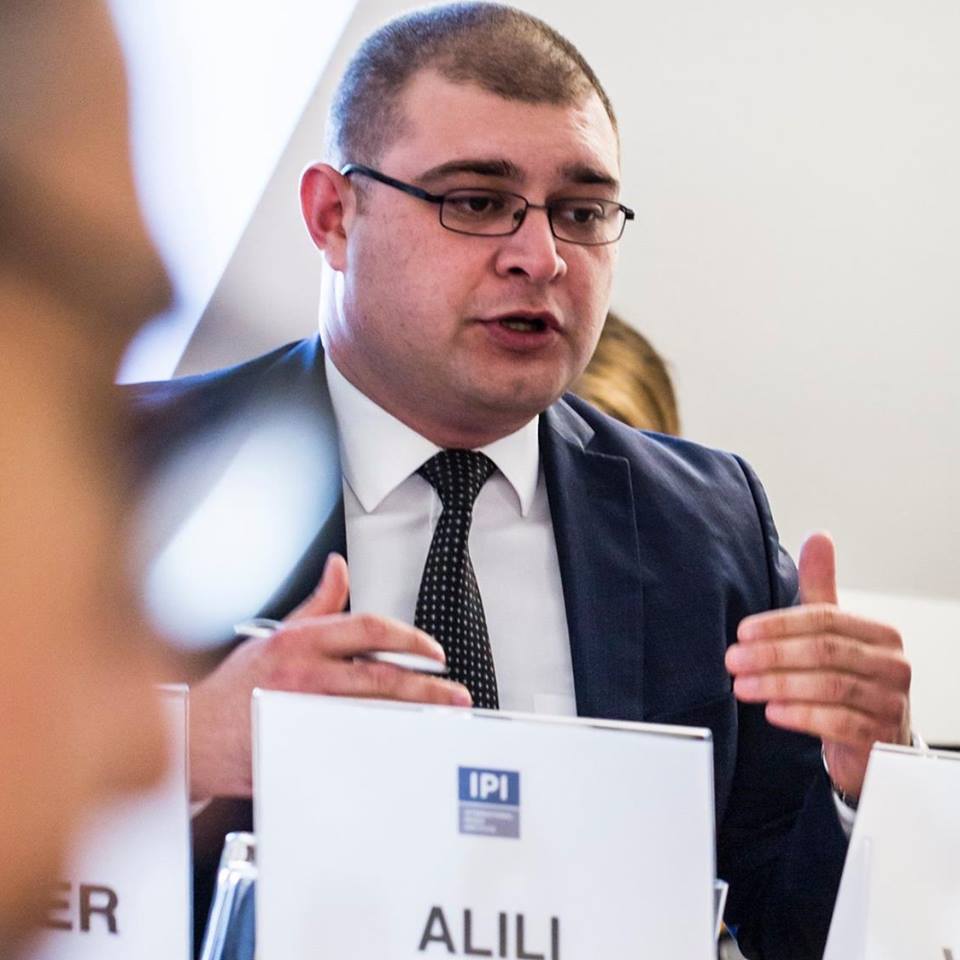
Perspectives of the US – China Relations and Implications for the Post-Soviet Space  By Benyamin Poghosyan, PhD, Executive Director, Political Science Association of Armenia
By Benyamin Poghosyan, PhD, Executive Director, Political Science Association of Armenia
The US – China relations are usually described as the most powerful force to shape the global security architecture for the upcoming decades. They have gone through tremendous transformations over the recent 45 years. The opening to China launched by the Nixon Administration was part of a US strategy to deter and contain the Soviet Union. Since the late 1980s the US have accelerated its economic relations with China creating a heavy interdependence. READ MORE
- EGF Editor |
Published on EGF: 04.11.2019
| External Relations
-
The 100th Issue of Gazprom Monitor  By Jack Sharples, Research Fellow of the Oxford Institute of Energy Studies and EGF Associate Researcher on the External Dimensions of Russian Gas
By Jack Sharples, Research Fellow of the Oxford Institute of Energy Studies and EGF Associate Researcher on the External Dimensions of Russian Gas
Dear Colleagues,
It is with great pride that we send you this 100th edition of the Gazprom Monitor.
The Gazprom Monitor was the brainchild of Dr Marat Terterov, Founder of the European Geopolitical Forum and the Brussels Energy Club. The first issue of the Gazprom Monitor was published in December 2010. […] Since that first edition, almost nine years ago, we have seen the launch of Nord Stream, the replacement of South Stream and Nabucco by the Turkish Stream and TANAP-TAP pipelines, a dramatic increase in the use of hub-indexation in place of oil-indexation in Gazprom’s long-term export contracts, the conduct and settlement of the EU antimonopoly investigation into Gazprom, the launch of Gazprom’s own Electronic Sales Platform, the completion of Gazprom’s acquisition of the Belarusian gas pipeline system, the long-running sagas of the Gazprom-Naftogaz and Gazprom-Lithuania arbitration cases, the cessation of direct Ukrainian gas imports from Russia, the sale of Gazprom’s shares in pipelines in the Baltic states, the launch of new LNG import terminals in the Netherlands, Lithuania, Poland, and France, opening the door to competing LNG from around the world including, most recently, from the United States, and the volume of Gazprom’s annual gas exports to Europe growing to record levels in 2017 and 2018.READ MORE
- EGF Editor |
Published on EGF: 30.10.2019
| Energy
-
Russia Proposes to Build Nuclear Power Plant in Azerbaijan  By Fuad Shahbazov, Baku-based independent regional security and defence analyst
By Fuad Shahbazov, Baku-based independent regional security and defence analyst
On October 3, Azerbaijani President Ilham Aliyev paid an official visit to Russia to attend the 16th annual meeting of the Valdai International Discussion Club, in Sochi (President.az, October 3). Aliyev’s speech at the high-level event touched on multiple topics, including Azerbaijan’s partnership with Russia, the unresolved issue of Karabakh, and regional security in the South Caucasus region, to name a few. Notably, during his remarks, Aliyev declared, “Nagorno-Karabakh is Azerbaijan—exclamation point!” which sparked heated discussions in both Azerbaijani and Armenian mass media and online (Turan Agency, October 4). READ MORE
- EGF Editor |
Published on EGF: 28.10.2019
| Energy
-
Turkey’s Incursion into Syria: What Lessons Should Armenia Take?  By Benyamin Poghosyan, PhD, Executive Director, Political Science Association of Armenia
By Benyamin Poghosyan, PhD, Executive Director, Political Science Association of Armenia
The eight and half years of Syrian conflict saw various, sometimes very strange, ups and downs. Everything started as an uprising against the authoritarian state with demands for democratic reforms. Later the situation transformed into civil war with growing influence of foreign fighters. In 2014, the Islamic State entered the stage making President Assad less evil for the West. Then Russia intervened militarily and changed the course of the war effectively saving Assad. In 2016 and 2018 Turkey launched two military operations taking under control parts of North-Western Syria. READ MORE
- EGF Editor |
Published on EGF: 28.10.2019
| Security
-
On Karabakh the Focus should Be on Confidence-Building Measures  By Benyamin Poghosyan, PhD, Executive Director, Political Science Association of Armenia
By Benyamin Poghosyan, PhD, Executive Director, Political Science Association of Armenia
The Karabakh conflict settlement process continues to interest regional security pundits. Yet, despite the growing optimism after the "Velvet revolution" in Armenia, in recent months, the prevailing mood has been more pessimistic. The two meetings between the leaders of Armenia and Azerbaijan at the beginning of 2019, and negotiations at the level of the foreign ministers, did not result in any breakthrough. The significant decrease in the number of incidents along the line of contact and on the Armenia-Azerbaijan international border since October 2018 is a positive step, although one can also see recent increases in clashes resulting in casualties on both sides. READ MORE
- EGF Editor |
Published on EGF: 16.10.2019
| Security
-
Azerbaijan in 2020: Recent Developments and Future Foreign Policy Challenges  By Ahmad Alili, Head of Research, Caucasus Policy Analysis Center, Baku
By Ahmad Alili, Head of Research, Caucasus Policy Analysis Center, Baku
At the dawn of the unipolar international system – following the collapse of the Communist system in Eastern Europe and the South Caucasus – “the end of history” was announced. It was expected that the benevolent hegemony of the United States would last for many decades to come – liberal values and democracy would be spread to each corner of the world. The events of recent years and the chaos in the international order shows that the world is transforming from a unipolar world into a multipolar one. This transformation process has its reverberations in regions such as the South Caucasus. READ MORE
- EGF Editor |
Published on EGF: 16.10.2019
| External Relations
-
Perspectives of EAEU – EU Relations  By Benyamin Poghosyan, PhD, Executive Director, Political Science Association of Armenia
By Benyamin Poghosyan, PhD, Executive Director, Political Science Association of Armenia
The relations (or the lack thereof) between the Eurasian Economic Union (EAEU) and European Union (EU) are one of the key topics of debate between international relations pundits. There are different assessments regarding the current situation and the way forward. However, almost all experts agree that the key issue here resides in the relationship between Russia and the West (US/EU/NATO). As long as this relationship is at its lowest point since the end of the Cold War, there is almost no chance of any substantial cooperation between these two organizations. READ MORE
- EGF Editor |
Published on EGF: 07.10.2019
| External Relations
-
Armenia and the US: Time for New Thinking  By Eduard Abrahamyan, Senior Fellow with the London-based Institute for Statecraft
By Eduard Abrahamyan, Senior Fellow with the London-based Institute for Statecraft
Armenia’s 2018 Velvet Revolution raised hopes for a reinvigoration of the country’s decades-long partnership with the U.S. However, this relationship remains stagnant, despite the visit of a U.S. delegation led by National Security Advisor John Bolton in October 2018 and the subsequent visit of Deputy Assistant Secretary George Kent to Yerevan in May 2019, resulting in the formal elevation of Armenia’s relations with the U.S. to the level of “strategic dialogue.” Moreover, Yerevan’s decision to dispatch a military-humanitarian mission to Syria remains an irritant in its interaction with Washington.
READ MORE
- EGF Editor |
Published on EGF: 07.10.2019
| External Relations
-
China's Underestimated Strategic Engagement in Central Asia  By Armine Arzumanyan, Graduate of Renmin University, PR of China
By Armine Arzumanyan, Graduate of Renmin University, PR of China
China's main goals in Central Asia may not directly hint at the region's long-term strategic importance, but the outcomes of China's engagement in the region clearly show concrete signs of it. China's emergence as the dominant actor in the region’s energy and infrastructure sectors, along with its growing presence as the lender of choice for Central Asia, has had deep consequences as Beijing has quietly cultivated the defense component of its newfound presence in region. Though relatively little studied, China's energy-infrastructure-defense tridimensional approach is of immense importance. READ MORE.
- EGF Editor |
Published on EGF: 02.10.2019
| External Relations
-
Gulf Tensions May Spill Over into the Caucasus  By Benyamin Poghosyan, PhD, Executive Director, Political Science Association of Armenia
By Benyamin Poghosyan, PhD, Executive Director, Political Science Association of Armenia
The September 14th attacks against Saudi Arabia's oil facilities have dangerously increased tensions in the Middle East. Regardless of the author of these actions - the Houthi rebels from Yemen or the Islamic Revolutionary Guard Corps using Iraqi or Iranian territories - a clear message was sent to the Gulf monarchies and the US: Iran on its own or through its proxy forces is capable of inflicting serious damage to the Gulf States’ vital interests, and the "maximum economic pressure" campaign led by the US since May 2018 has as yet failed to change Iranian regional policy. READ MORE
- EGF Editor |
Published on EGF: 01.10.2019
| Security
-
